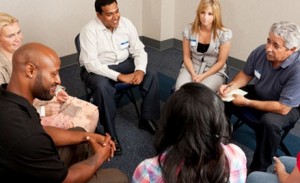Pornography, Christianity and Control
 When thinking of pornography and Christianity and the issue of control, things get quite interesting. Matthew 18:3 informs us:
When thinking of pornography and Christianity and the issue of control, things get quite interesting. Matthew 18:3 informs us:
- And he said: “Truly I tell you, unless you change and become like little children, you will never enter the kingdom of heaven.”
On the other hand it seems intuitive that the repetitive use of pornography is proof that our “internal adolescent” has wrested away the controls in the command center of our brain and what is needed is a return of control to the superego. We long for simple joys, simple trust, unconditional love but there is no denying that we physically are no longer children and we can get into some very big trouble.
Pornography, Christianity and Control Read More »









 And always, I felt inexplicably sad. Nothing made me happy. Most frightening of all, I made intricate preparations for my death. 1
And always, I felt inexplicably sad. Nothing made me happy. Most frightening of all, I made intricate preparations for my death. 1